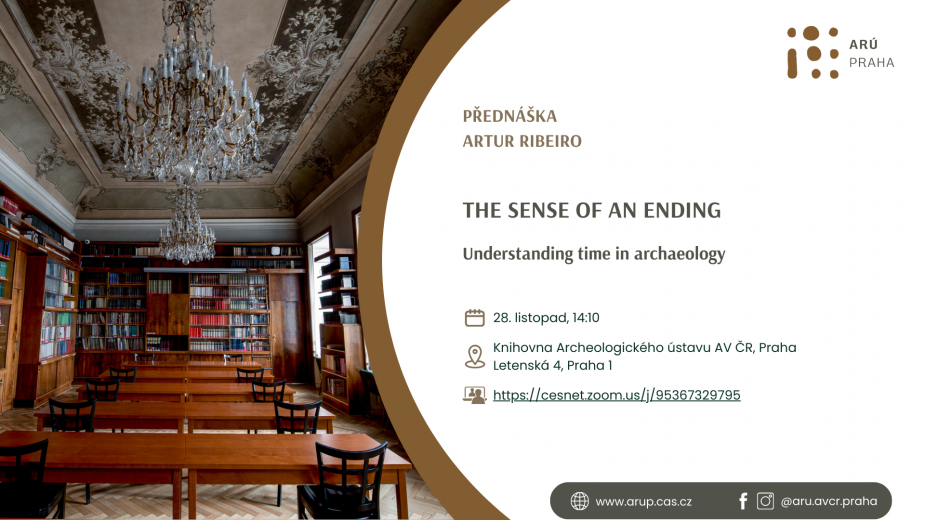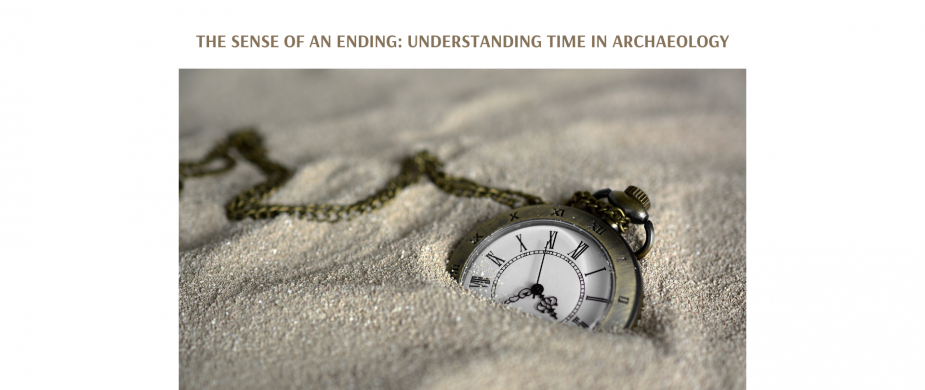Přednáška | The Sense of an Ending
The Sense of an Ending: Understanding time in archaeology
Artur Ribeiro (Christian-Albrechts-Universität zu Kiel)
28. listopad, 14:10
Přednáška proběhne hybridně – v knihovně ARÚ v Letenské 4, Praha, a online přes Zoom (https://cesnet.zoom.us/j/95367329795).
Abstrakt:
There is much written on the relationship between archaeology and time. Much of this writing concerns the notion of temporality, that is to say, the lived times of the past, and on occasion there is also discussion on contemporaneity, focusing on the distinction between past, present, and future, or the distinction between before and after.
Despite all these discussions on time, there is a surprising lack of discussion of our current times and how they have affected archaeology in multiple ways, from our conception of periodizations, such a Neolithic and Bronze Age, to how time affects our workday, our publication schedules, and the structure of our projects. The times we live in are accelerated, short-term, and immediate. Whereas the past was marked by day-night cycles, the technologies of power of today have made it possible to live according to a 24/7 economy, with supermarkets, gyms, and workplaces that never need to stop. Past lives operated according to rituals, with cycles of death and return, but we now live what in what Francis Fukuyama has called the end of history, a period of hectic rush, where nothing seems to end, including life.
Modernity was marked by grand narratives of the future and progress, a longing for new forms of life, and of moving beyond where we are, but in our postmodern times, we have lost this revolutionary pathos of endings and new beginnings, leaving us with nothing but an eternal present. The aim of this talk is precisely to discuss how archaeology has adapted to current times, in terms of how we structure our practices and the discipline, but also in how we are gradually losing the narrative boundaries that gives time its own meaning.

-
Pozvánka ke stažení (pdf) (2.42 MB)Stáhnout

